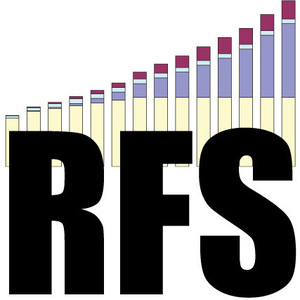At 13 years old, the RFS is still vital policy

August 8, 2018
BY Ron Kotrba
Aug. 8 marks the 13th anniversary of what Brooke Coleman, the executive director of the Advanced Biofuels Business Council, says is the U.S.’s “single most successful energy policy”—the Renewable Fuel Standard. First signed into law by President George W. Bush in 2005, the RFS was renewed and expanded in 2007 (RFS2) to include advanced biofuels such as biomass-based diesel.
“It has spurred investment and development of new technologies in advanced and cellulosic biofuels and is critical pillar in the foundation of the biobased economy,” said Brent Erickson, executive vice president of the Biotechnology Innovation Organization’s Industrial & Environmental Section. “But EPA waivers have rolled back our progress, cutting biofuel targets to 2013 levels. The EPA must enforce the law, as Congress intended, and restore U.S. leadership in low-carbon biofuels.”
Under RFS2, which was part of the Energy Independence and Security Act of 2007, biomass-based diesel volume obligations started out at a meager 500 million gallons in 2009 and ratcheted up to 1 billion gallons in 2012, the floor for the category. After 2012, the legislation gives U.S. EPA—the agency in charge of implementing the RFS—annual discretion as to how high the biomass-based diesel obligations should be set.
For the most part, the annual volume requirement has grown conservatively but steadily since 2012. This year and next, however, the biomass-based diesel volume is stalled at 2.1 billion gallons each year.
Advertisement
Advertisement
In June, EPA proposed growing the category from 2.1 billion gallons to 2.43 billion gallons in 2020, a welcomed move after a rocky year and a half with the new Trump administration’s EPA, led by former Administrator Scott Pruitt, proposing in 2017 to not only stall biodiesel growth, but to cut it. Thanks to political champions, individual stakeholders and the National Biodiesel Board, the latter never materialized.
“The growth of the U.S. biodiesel industry has been one of the greatest successes of the RFS program,” said Donnell Rehagen, CEO of the NBB. “Biodiesel and renewable diesel are the most widely available commercial advanced biofuels today. And producers are making investments for tomorrow. As the RFS program comes of age, it is still a vital policy for building U.S. energy security and ensuring environmental benefits.”
Advertisement
Advertisement
Related Stories
The U.S. EPA on July 8 hosted virtual public hearing to gather input on the agency’s recently released proposed rule to set 2026 and 2027 RFS RVOs. Members of the biofuel industry were among those to offer testimony during the event.
The USDA’s Risk Management Agency is implementing multiple changes to the Camelina pilot insurance program for the 2026 and succeeding crop years. The changes will expand coverage options and provide greater flexibility for producers.
President Trump on July 4 signed the “One Big Beautiful Bill Act.” The legislation extends and updates the 45Z credit and revives a tax credit benefiting small biodiesel producers but repeals several other bioenergy-related tax incentives.
CARB on June 27 announced amendments to the state’s LCFS regulations will take effect beginning on July 1. The amended regulations were approved by the agency in November 2024, but implementation was delayed due to regulatory clarity issues.
SAF Magazine and the Commercial Aviation Alternative Fuels Initiative announced the preliminary agenda for the North American SAF Conference and Expo, being held Sept. 22-24 at the Minneapolis Convention Center in Minneapolis, Minnesota.
Upcoming Events










